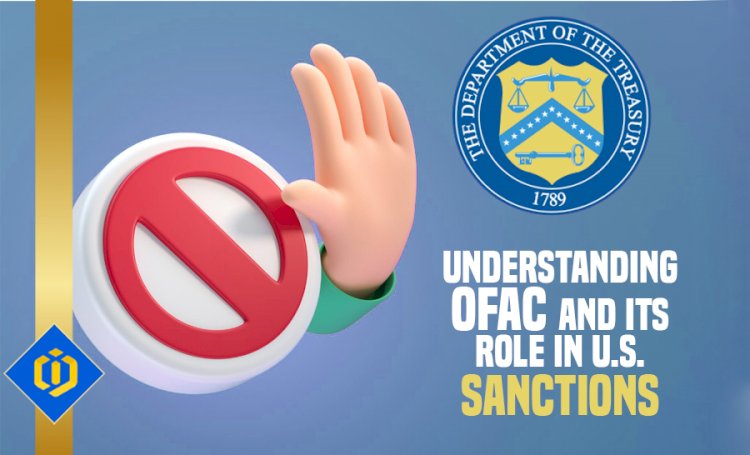Navigating U.S. Sanctions: Understanding the Significance of OFAC

Economic sanctions have long served as a diplomatic tool for countries, allowing them to exert pressure and influence without resorting to military force. In the United States, the Office of Foreign Assets Control (OFAC) plays a pivotal role in implementing and enforcing economic sanctions. This article aims to demystify OFAC and provide insights into its critical function in U.S. sanctions.
The Office of Foreign Assets Control (OFAC) operates as an office within the U.S. Department of the Treasury. Its primary responsibility is to administer and enforce economic and trade sanctions against targeted foreign countries, regimes, terrorists, international narcotics traffickers, and other entities that pose a threat to the national security, foreign policy, or economy of the United States.
OFAC's historical roots can be traced back to World War II when several executive orders were issued to prevent enemy forces from accessing the U.S. financial system. As time passed, the scope of OFAC's responsibilities expanded, adapting to the changing geopolitical landscape and evolving threats to U.S. national security and policy.
OFAC operates through various mechanisms and programs. It administers multiple sanctions programs, which are either mandated by legislation, such as acts of Congress, or executive orders from the President. Each program is designed based on U.S. foreign policy and national security goals, addressing specific concerns and objectives.
One of OFAC's primary tools is the Specially Designated Nationals (SDN) List. This list includes individuals, groups, and entities with whom U.S. citizens and businesses are prohibited from engaging in any transactions. Being listed on the SDN List can result in asset freezes and denial of access to the U.S. financial system, effectively isolating the designated entities.
While OFAC imposes prohibitions, it also possesses the authority to grant licenses that authorize transactions under certain circumstances. This flexibility ensures that the sanctions remain targeted and do not unintentionally harm humanitarian efforts or other permitted activities. By granting licenses, OFAC strikes a balance between enforcing sanctions and allowing necessary transactions that align with U.S. interests.
Entities that violate OFAC regulations can face significant penalties. These penalties include monetary fines and restrictions on their ability to operate within the U.S. financial system. The severity of the penalties serves as a deterrent and reinforces the importance of compliance with OFAC regulations.
The implications of OFAC's sanctions extend beyond U.S. entities and impact foreign firms with any ties to the U.S. financial system. Given the dominance of the U.S. dollar in global trade, many international transactions are exposed to U.S. sanctions, even if they do not directly involve U.S. entities. This global reach underscores the necessity for businesses worldwide to be knowledgeable about and compliant with OFAC regulations to avoid penalties and disruptions to their operations.
OFAC plays an instrumental role in the United States' non-military efforts to shape global events, promote foreign policy objectives, and safeguard national security interests. While sanctions can be a potent tool, they are also complex instruments that require continuous evaluation to ensure their effectiveness and prevent unintended consequences. As the geopolitical landscape evolves, so will the role of OFAC in navigating the intricate dance of diplomacy, economics, and security.
Author: Pooyan Ghamari, Swiss Economist & Visionary

 content-team
content-team 






















